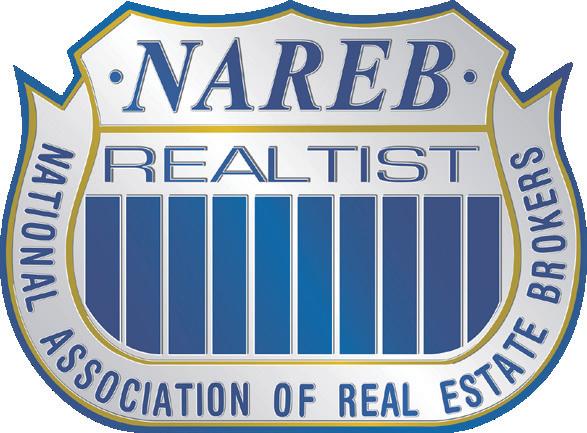
6 minute read
SECTION 4 BOARDS AND COMMISSION PROCESS - PRACTICUM
The process to apply for a board or commission placement will vary by city by city and county by county, but we’ve created a general outline of what you can generally expect in most cases, so you can begin to prepare your profile:
Step 1
Advertisement
Research the Board and Commissions process in your city or county.
Knowing all that you can about the boards and commissions process in your area will be critical before making a decision. You want to fully understand the function, purpose, and mission of any board or commission before seeking an appointment.
Contact your city or county office: Look up publications, city/county websites that list current boards and commissions. Review the lists for relevance to your area of interest.
• Research the legal statute that establishes its existence and duties of the particular board or commission of interest.
• Review the board or commission website to review past minutes, newsletters and annual reports.
If applicable, observe a meeting or event held by the board or commission of interest.
If you have established strategic relationships with a current member(s) of the board or commission of interest, interview them to learn what is expected as part of an appointment. If you do not currently have an established strategic relationship, current members are generally listed on the city/county website, you might be able to connect with a member via professional introduction.
Sample Research Questions:
Which boards and/or commissions are related to your area of expertise?
Which boards and/or commissions have current or upcoming vacancies?
Who is the appointing authority for the board and/or commission?
How many members serve on the commission/board?
What are the required or preferred qualifications for members?
What are the term limits for members?
What are the duties of members?
What is the time commitment from members?
When and where are the meetings held?
How long are they?
How is the board or commission structured in terms of committees?
What are the current priorities of the board or commission?
What are the current challenges faced by the board or commission?
Step 2
Matching with the right Board or Commission will be important to your success and your longterm impact.
Once you have identified a board or commission that interests you, you will want to do your due diligence to ensure you are a good match. Examine and evaluate your skills and qualification, align with the mission of the organization along with the criteria it has set for its members.
The appointment process can be competitive, so having clarity about your qualifications, expertise and connection to the mission and duties of the board or commission is key.
It is not a requirement to have prior board/commissions experience to service, what is important is alignment with the board or commission of interest. This is where your qualifications, experience and expertise should be fleshed-out for you to be able to confidently articulate, in your strategic relationship building, application and/or interview process or during any campaigning.
A note on expertise - everyone has an area of expertise; some have gained this by study and education; others by way of lived experience. Do not diminish your expertise.
Below is a self-assessment exercise that will help you outline your qualifications, experience and expertise. You will begin by listing your experiences out. Do not hold back the details and do not assume some part of your journey is not valuable:
Skills and Experience:
Professional Experience:
Volunteer Experience:
Educational Experience:
Volunteer and educational experience:
Skills acquired through any professional development:
1. Self-Assessment Exercise: From the above lists highlight the skills and experience that directly contribute to the board/commission of interest.
2. List Your Honors, Awards, and Other Interests: Highlight honors, awards, and interests that are most relevant to the mission and duties of your selected board or commission.
3. Write out a descriptive qualities statement: This statement will generally begin with I am… Analytical, Calm, Confident etc. You will also compile your qualities, skills, honors, and experiences that are directly related to the board or commission of interest. You want to be able to clearly articulate orally or in writing, “How will you be an asset to the board or commission?”
Step 3
You want to begin to build support, this is another area where your strategic relationship will be helpful.
Once you know you have the necessary skills, experience, and interest to serve on a board or commission, you want to begin to share with your team, strategic partners and network so they can help identify opportunities for you and act as your ‘word-of-mouth’ campaigners.

Step 4
Resumes, Covers Letters, and Recommendations
Your request for nomination or application should include a cover letter, a current resume, and possibly letters of recommendation. Remember requirements may vary by city or county and organization, so be sure to check with the appointing authority to ensure your application is complete to their requirements.
The Cover Letter
A cover letter should be typed, brief, printed on highquality paper, and organized into three parts:
• In the first paragraph, you will indicate a specific interest or general appointment interest, and your reasoning.
• In the second paragraph, you detail the specific issues you wish to address relative to your board or commissions of interest.
• The third paragraph should indicate a brief description of your relevant qualifications for serving.
The Resume
A resume used to apply for a position on a board or commissions may be different than one used to inquire about a 9-5 job. A resume used for an appointment should highlight political affiliations, knowledge of the community, and political campaign experience. It should highlight experiences that directly relate to the mission and goals of the board or commission, rather than the long version resume used for securing employment with a company of your working history.
A strong resume is neat, well organized, typed, easy to read, and includes the following:
Contact Information:
Objective Statement:
Qualifications:
Experiences:
References:
Letters of Recommendation
Include your name, address, email address, fax number, and day and evening telephone numbers. A very specific statement stating your goals. Name the appointment you want.
Describe your professional, educational, and volunteer experiences related to your objectives. Use action verbs. List strongest and most relevant experiences first.
List information about your paid work, education, volunteerism, and special skills and abilities, most important listed first. List your title, duties, name of organization, and relevant dates. Tailor to maintain relevance to the board or commission of interest.
Include names and contact information for references if well known or influential, otherwise simply state “References furnished upon request.” Although not always required, it is a good idea to include letters of support as part of your application. Consider including letters from experts affiliated with the board or commission, as well as letters from people who may have influence with the appointing authority. Provide a copy of your resume to the person writing the recommendation. Be sure to indicate when the recommendation is needed, where it should be sent, and to whom it should be addressed.
Step 5
This is the Nomination, Confirmation, and/or Appointment activity.
The appointment process is actually two separate steps:

1. Nomination by the appointing authority
You can expect to be notified by the appointing authority if your name will be put forward for nomination. In most cases, you will be asked to fill out and return an Application for Appointment. The application is subject to change.
2. Confirmation through a separate body
A nomination is an honor, but does not constitute an actual appointment. A body separate from the nominating party may confirm nominations in some cases. Once you have been notified of your nomination and submitted your Application for Appointment, if requested, you should begin to contact members of the body who confirm nominations. While email can be used as a last resort, telephone calls are the best way to make personal contact with confirming members. The best way to be prepared for this conversation is to know all you can about the board or commission to which you have been nominated.
You’ll want to know who is in control of each step of the process, be sure to identify this information when researching your preferred board or commission. Send your application packet to the nominating party to begin the appointment process. (or as required based upon your city)
3. Appointment
There can be considerable time between a nomination and confirmation. To learn about the status of your confirmation,
• Check your local newspaper. They often cover local residents who are up for appointments.
•
• Contact the city or the county office.
• Wait for confirmation papers in the mail. If appointed, you will likely be notified in writing.
Congratulations!










